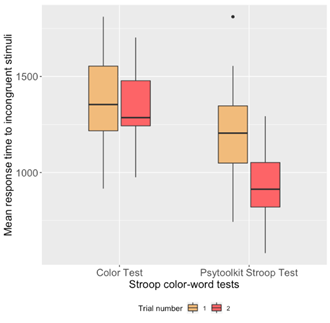Novel smartwatch-based cognitive tests are shown to be as valid as the standard computer-based tests. Cognitive domains including memory, attention, and executive skills fluctuate over time, and smartwatches have a great potential in capturing variations in human cognition in every context. UbiCAT is a smartwatch-based tool to assess the key cognitive functions through short and engaging tests.
Wearables are portable devices suitable for monitoring individuals’ behavior. Recently, smartwatches have become more popular and individuals use these light-weight devices in their daily contexts. The cognitive tests of UbiCAT are designed to be short for frequent daily assessments, and are adapted from the standard cognitive tests to calculate reliable measures of human cognition. UbiCAT made it possible to integrate cognitive performance measures collected via smartwatches with the current wearable sensor data to allow for a thorough monitoring of the individuals’ behavior and cognition.


Post-PC technologies implemented on smartphones and smartwatches have a different interaction space. While a personal computer requires a keyboard to record the test responses, the inputs to the smartphones and smartwatches are captured by a touch screen. A few of the novel ubiquitous technologies have been evaluated against a computer-based test to discover the difference between user’s response times and accuracy in a test session. Through an empirical study, we demonstrated the potential of smartwatch-based tests in quantifying human cognition. A study was conducted with healthy individuals to investigate how participants’ cognitive performance calculated by the standard computer-based tests are compared with the measures calculated by the UbiCAT tests. Our results revealed a significant correlation between the test scores of the participants delivered via the UbiCAT and standard computer-based tools. UbiCAT was shown to be highly usable and accepted by the study participants. We also discuss the differences between the cognitive measures calculated by a smartwatch and a computer, and report how our study participants perceived both tools. Read more about this study in our article.
